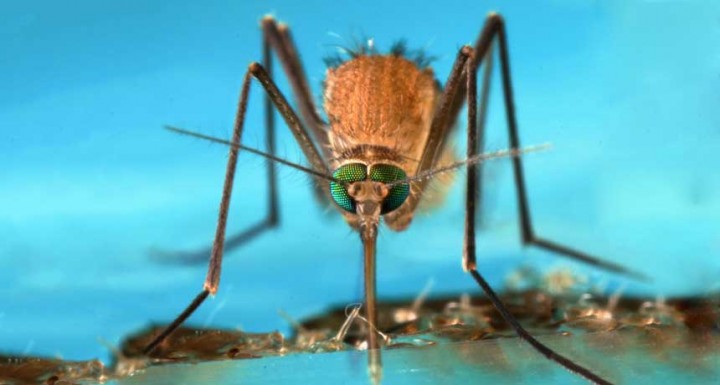Immune cells in a malaria-transmitting mosquito sense the invading parasites and deploy an army of tiny messengers in response. These couriers help turn on a mosquito’s defenses, killing off the parasites, a new study suggests.
This more detailed understanding of the mosquito immune system, published January 20 in Science Immunology, might help scientists design new ways to combat malaria, which infects more than 200 million people per year.
“If we understand how the mosquito reduces the parasite to begin with, we hope we can boost these mechanisms to completely eliminate these parasites [in mosquitoes],” says Kristin Michel, an insect immunologist at Kansas State University in Manhattan who wasn’t part of the study.
Different parasites in the Plasmodium genus cause malaria. The disease is spread by certain Anopheles mosquitoes. These mosquitoes have natural defenses against Plasmodium that keep them from being overrun with the parasites when feeding on an infected person’s blood. But malaria transmission still occurs, because some Plasmodium species are particularly skilled at evading mosquito immune systems.
Previous research has shown that hemocytes, the insect equivalent of white blood cells, help mosquitoes fight off pathogens. Carolina Barillas-Mury and her colleagues at the National Institute of Allergy and Infectious Diseases in Rockville, Md., injected Anopheles gambiae mosquitoes — a primary spreader of malaria in sub-Saharan Africa — with a dye that stained their hemocytes. Those mosquitoes snacked on mice infected with a rodent version of malaria. Then the scientists watched the dyed hemocytes’ response.
Parasite’s problem
Sensing the presence of a malaria-causing parasite, mosquito immune cells (teal) kill themselves and release microvesicles (red) that activate cellular machinery that fights off the parasites, a new study finds.
Hemocytes that detected certain chemical fingerprints left by the parasites began to self-destruct. These dying hemocytes released plumes of tiny vesicles that then activated the mosquito’s defenses against the parasite, the researchers found. The vesicles triggered a protein called TEP1 to take down the parasite. Scientists already knew that TEP1 is an important part of mosquitoes’ immune response against Plasmodium parasites, but it wasn’t clear how the protein was called into action. Without the vesicles, TEP1 didn’t target the parasites.
Barillas-Mury and colleagues don’t know exactly what the microvesicles contain. But she suspects they carry messenger molecules that jump-start TEP1 and other proteins involved in this immune response.
This type of response “is a very powerful defense system because it can make holes in the parasite and kill it,” says Barillas-Mury. “You want it to be active, but in the right place and at the right time.” Plasmodium parasites set up shop in different places in the mosquito gut depending on their life stage. Microvesicles, much smaller than the hemocytes, can more easily move through different gut compartments to trigger a localized immune response right where the parasite is.
The researchers eventually hope to use their understanding of the mosquito immune response to develop new ways to stop malaria. They’re interested in creating a vaccine that prevents mosquitoes that bite an infected person from passing along the parasite. Such a vaccine could be used in combination with others under development that would prevent people infected with the parasite from becoming sick, Barillas-Mury says.
Source: Sciencenews.org




